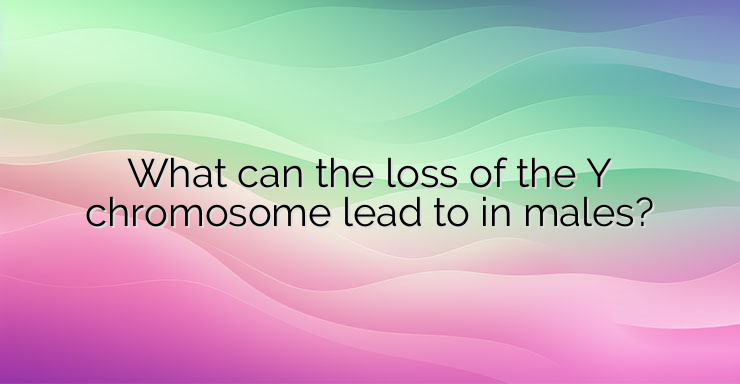The Y chromosome is one of the two sex chromosomes in humans (the other being the X chromosome). Sex chromosomes make up one of the 23 pairs of human chromosomes in each cell. The Y chromosome makes up almost 2 percent of the total DNA in cells. Each person normally has one pair of sex chromosomes in each cell. The Y chromosome is present in males, who have one X and one Y chromosome, while females have two X chromosomes. The identification of the genes on each chromosome is of increasing interest in genetic research. Because scientists use different approaches to predict the number of genes on each chromosome, the estimated number of genes varies. The Y chromosome probably contains between 70 and 200 genes that provide instructions for making proteins. Since only males have a Y chromosome, the genes on this chromosome are involved in the development of the male sex. Sex is determined by the SRY gene, which is responsible for the development of the male embryo. Other genes on the Y chromosome are important for male fertility. Many genes are unique to the Y chromosome, but genes in areas known as pseudoautosomal regions are present on both sex chromosomes. As a result, males and females each have two functional copies of these genes. Many genes in pseudoautosomal regions are essential for normal body development. As men age, they begin to lose Y chromosomes from their cells. Scientists link this extinction to a long list of diseases and reduced life expectancy, but the evidence for this is circumstantial. Scientists report that when they removed the Y chromosome from male mice, it shortened their lifespan. The Y chromosome has about 71 genes – less than a tenth of the X chromosome. This may be why the chromosome is sometimes not passed on when the cell divides. Analyzing blood samples is the easiest way to detect Y chromosome loss, and researchers have found that the chromosome is missing from at least some white blood cells in about 40 percent of 70-year-old men and 57 percent of 93-year-old men. In some adult males, more than 80% of the cells may have a short Y chromosome. Cells can survive and reproduce without a Y chromosome, but men who lack the chromosome in some of their cells are at increased risk of cardiovascular disease, cancer, Alzheimer’s disease and other aging-related diseases. Scientists have also found a link between the loss of the Y chromosome and certain diseases, including heart failure. Also, the loss of the Y chromosome may be why men have an average of about 5 years shorter life than women. Researchers have so far played down the health impact of the Y chromosome because it holds few genes, but evidence suggests that its loss has serious consequences. Studies have found that men who have lost the Y chromosome from at least 40% of their white blood cells,have a 31% increased risk of dying from diseases of the circulatory system than men in whom the chromosome is observed in greater quantities. References: 1. American Association for the Advancement of Science. Men lose Y chromosomes as they age. It may be harming their hearts 2. MedlinePlus. Y chromosome 3. Ginalski K, Rychlewski L, Baker D, Grishin NV. Protein structure prediction for the male-specific region of the human Y chromosome 4. Noordam MJ, Repping S. The human Y chromosome: a masculine chromosome


Leave a Reply